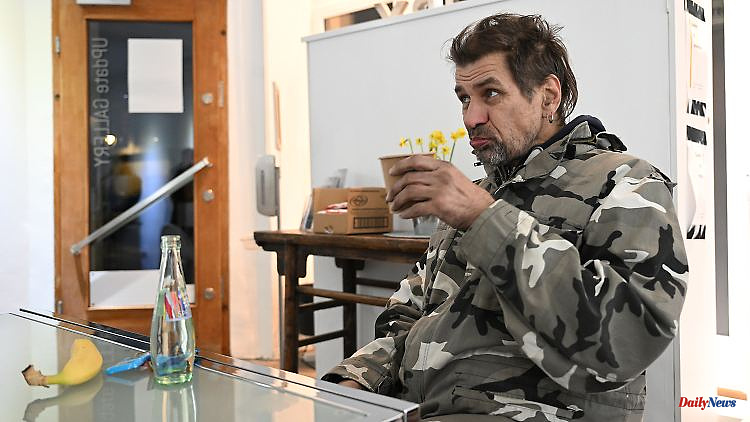is this art Or can it be (spooned) away? Art galleries are often very elite places for the well-heeled. In a conscious break with this, the artist Dennis Meseg has now converted a gallery in Bonn into a "kitchen for the poor".
The bearded man, who has just stocked himself with a cup of soup and an apple, is already on his way out when he turns around again. "You would have to stay forever," he says quietly to Dennis Josef Meseg, who is standing behind a large soup pot on a hot plate. Mezeg smiles. Unfortunately, that won't be possible, he replies. The gallery owner, in whose premises he is currently a guest, ultimately wants to earn money again at some point.
"The gallery becomes soup for the poor - soup instead of champagne" is the name of the current project of the 43-year-old action artist and sculptor Meseg. Every evening from 5:00 p.m. to 8:00 p.m., he hands out organic soup to the needy in the Update Gallery in Bonn's old town. The time of year is ideal for this: January and February, when the days are short and the nights can be bitterly cold. And Christmas is just a distant memory.
The gallery owner was initially a little surprised when he told her that she didn't want to place any pictures or sculptures in her rooms, says Meseg. But then she thought the idea was a good one. A resident, on the other hand, mobilized the trade inspectorate and the regulatory office. Others, on the other hand, enthusiastically contributed fruit or monetary donations. Overall, the reception is very positive, says Meseg. Gallery visitors are usually higher earners who invest in art and are often invited to exclusive vernissages.
"That's exactly what I wanted to exchange," says Meseg. "Out with the rich and champagne, in with the poor and soup." He rents the gallery at cost price. "It's completely self-funded from other projects," he says. "I see it as an investment in my artistic education. And I want to give something back to the universe." He left home early as a young man and subsequently lived on the streets for a while. That's why the action also has something to do with his own biography, he says.
Sleet is falling outside. "I'm spreading it widely, everyone finds it exciting," says a woman who takes a mug of soup with her. At first only a few found their way into the small gallery, but on day 5 there was suddenly a lot of activity. "We gave out 20 liters by the evening," says Meseg. Some of the visitors have problems with alcohol and drugs. There are refugees among them who speak little or no German, homeless people, but also "normal" professionals who have an apartment nearby. A middle-aged woman said that she and her partner can no longer cope with the increased additional costs: "Electricity, gas, water, groceries - everything has become so expensive that we are happy to resort to offers like this one." Some say at first that they just came out of curiosity - but then they gratefully eat the soup.
The fact that the whole thing is an art event doesn't seem to interest the visitors that evening. For Meseg himself, the art aspect is already given by the fact that he has transplanted a certain room into a different environment. "A poor kitchen is now taking place in a place where expensive pictures are usually bought. On a small scale, that's what's happening in the world: some drink champagne, others don't even have enough to make soup Afford."
A question that has already been asked: Can you use people in need for an art campaign? Visitor Olaf shrugs his shoulders. "I really have very little dough, so this is a great campaign. I'm happy to make myself available as an art object."












